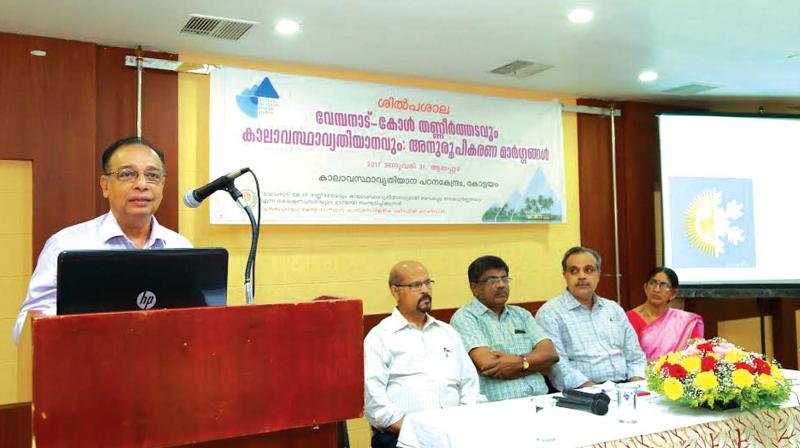Vembanad-Kol wetland system faces threat
Rise in sea level due to climate change can affect lakhs of livelihoods.

ALAPPUZHA: The rise in the sea level due to climate change can adversely affect the Vembanad- kol wetland system which provides the livelihood for lakhs of families directly and indirectly. The storm surges in the long run can erode the sand that developed the wetland. It can make salinity levels change drastically resulting in the degradation of the present ecosystem and biodiversity. This is the conclusion reached by scientists at a workshop held here by the Institute for Climate Change Studies (ICCS), Kottayam, on Tuesday. The workshop was conducted as part of a research project entitled ‘Vulnerability of Vembanad-kol wetland to climate change’ funded by the Kerala State Council for Science Technology and Environment. The Vembanad wetland system is directly linked to farmers, fishermen, clam collectors, tourism operators, and coir workers. The disappearance of sand bars would affect the drinking water schemes at the lower streams of rivers and as a result the rice cultivation in Kuttanad in its present form will not exist, the workshop said.
Dr E.J. James, member, Central Wetland Regulatory Authority, said that the sea level might rise by 0.5-1 metres at mid-level by 2100 causing collateral damage to the eco system. “Long- term and short-term measures have to be taken immediately to tackle the situation. We have to closely watch the water quality changes, improve prediction and forecasting techniques, investigate the socio-economic impact of climate change on water resources and formulate policies to take care of environment, people and business that are responsive to the changing climatic conditions,” he said. According to Dr Leenakumari, professor, Kerala Agriculture University, Thrissur, the immediate victim of climate change would be agriculture resulting in losses due to heat, erratic weather and decreased water availability. We need strategic adaptations to minimise negative impacts through research and policy support,” she said.
The workshop called for research and extension, scientific water management, introduction of well-planned subsidies and incentives, economic instruments for income diversification, institutional change and synergy to meet the threat of climate change. Dr K.G. Padmakumar, director, International Research and Training Centre for below sea-level farming, and Dr Nagendra Prabhu, professor, SD College, made presentations on sectors like fisheries, biodiversity, agriculture, animal husbandry and water quality. The discussions were moderated by Dr George Abe, head, Centre for Water Resources Development and Management, (CWRDM) sub-centre, Kottayam. Dr George Chackacherry, director, Institute for Climate Change Studies, and Dr Shylesh Chandran, scientist, ICCS were among those who attended the discussions.

